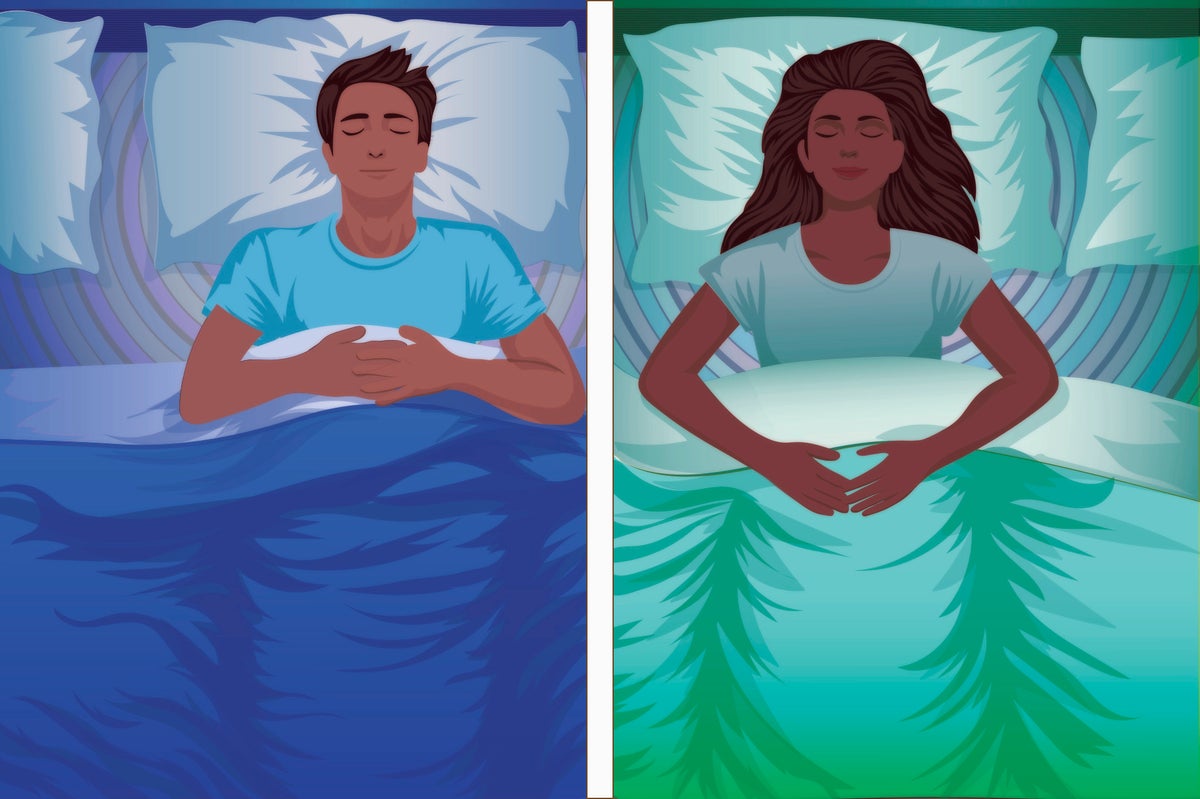Specialists say there are benefits to couples sleeping separately

Michael Solender and his wife have been married for 42 years. For the initial 10 years, they shared the same bed, but over time, they shifted to sleeping in separate rooms.
machine.
He's often warm at night, whereas she tends to be chilly.
“We should all spare separate bedrooms, which is a key factor in having a healthier and stronger relationship,” said Solender, 66. “There's nothing embarrassing about that; there's no stigma attached.”
Disruptions such as snoring, changes in sleeping temperature, pillow snatchers, and restlessness during the night often cause couples to sleep in separate beds. Other factors contributing to this phenomenon include illness, mismatched work schedules, and partners having dissimilar bedtime and wake-up times.
Research revealed that people sometimes or always sleep in a different room to make way for a partner, as per a 2022 study by the American Academy of Sleep Medicine. It's men who typically take to the sofa or guest room for a night's rest.
Actually, it is mainly millennials who do it more so than older generations.
Dr Seema Khosla, a respiratory specialist and representative of the academy, stated that obtaining satisfactory rest, which typically consists of around seven to eight hours for adults, is essential for maintaining healthy interpersonal connections.
According to Dr. Khosla, medical director of the North Dakota Center for Sleep in Fargo, people who regularly struggle with sleep problems are more likely to experience relationship conflicts with their partners.
It's down to people making their sleep a priority, really," Khosla said. "I've treated patients who've been together 60 years and they've said that having separate bedrooms was the reason for their happiness.
フェリシスは独りで寝ていることを dijo, "それはこれほど思考されている可能性があります。
The same principle applies to sleep apnea, a major contributor to heavy snoring, as Khosla noted. Solender admitted he consulted a sleep expert once he recognised the extent to which his own sleep deprivation was affecting himself and his wife.
He mentioned waking himself and the person he was with during the night." "I wasn't aware I had sleep apnea, but nearly 20 years ago I began dozing off at junctions or while watching TV or reading." "It wasn't until then that I realised I had a problem with my energy levels.
The key to making separate sleep spaces successful is to talk about it ahead of time, as Solender did with his wife.
It's not about steering clear of intimacy. It's really about acknowledging that you can still have a sense of closeness and shared time, but then simply sleep separately. What's crucial here is that both parties need to comprehend and agree upon this arrangement.
She has noticed hesitation among her patients when she advises them to sleep in separate beds.
“Normally, it's usually a spouse who's snoring or an alarm set by a partner that goes off at four in the morning, and so on. We'll discuss this and people often respond quickly to say, ‘No, that won't be suitable for me.”
It's told that some individuals will sit on the idea for a moment before weighing their thoughts on it, as they'd really like to pursue the opportunity but are hesitant on how to discuss it with their partner.
Tracey Daniels has slept in a separate room to her husband for about four years. At first, there wasn't a big discussion and she simply retired to the spare bedroom.
My husband's snoring was the initial cause, but my extremely light sleep also made things worse - I'd wake up even if he merely dropped an object like a paperclip on a room with carpeted flooring.
She subsequently told, she started the conversation after her diagnosis with breast cancer and undergoing surgery.
"He winds me down and gives me a goodnight peck," Daniels said.
They take it in turns to look after their three dogs at night.
Dr Phyllis Zee, chief of sleep medicine at Northwestern University's Feinberg School of Medicine and director of a sleep clinic at Northwestern Memorial Hospital in Chicago, has encountered common cases of sleep separation in her practice.
It's really beneficial to converse about sleep compatible issues before making a lifelong commitment. I commonly observe that it's a point of contention that cropped up after couples had tied the knot and/or been partnered for a considerable period, with them usually trying to work through the issue for a while.
By middle age, Zee indicated, sleep becomes less robust.
“You're more likely to experience insomnia or sleep apnoea, and that can cause some problems,” she said.
There's absolutely no need to be self-conscious about sleeping apart. According to Zee, technology has made sharing a bed less of a challenge in some respects. Devices like white noise machines, cooling pillows and mattresses, and dual-zone electric blankets have been helpful, Zee noted. Some couples have even resorted to using their own blankets to make sleeping easier.
“There is a considerable marketplace available to alleviate some of these issues.”
Sleep separation is gaining acceptance as individuals become more mindful of the significance of quality sleep for overall wellbeing, Zee noted.
On the other hand, research does suggest there are benefits to sleeping together, doesn't it?" she said. "From what I've found, in general the most straightforward thing is to get professional advice before making a decision – are the issues likely to be symptoms of a sleep disorder that can be treated?
.
Post a Comment for "Specialists say there are benefits to couples sleeping separately"